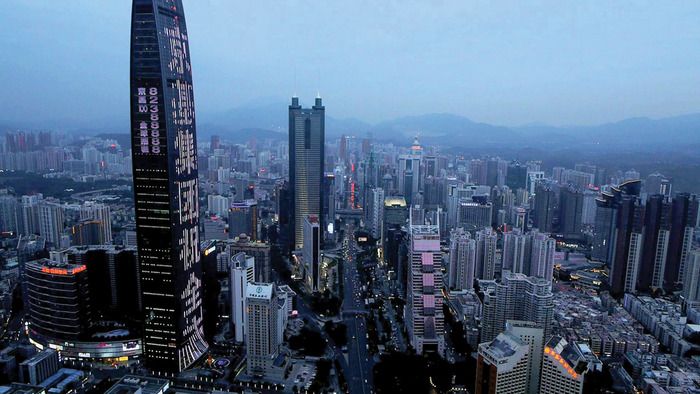Postcard from Shenzhen


Yang Tu Yang Ni
Shenzhen was a small fishing and farming village of around 60 thousand inhabitants nearly 40 years ago. Today the Shenzhen Metropolitan population is 18 million. Deng Xiao Ping declared it a special economic zone in May 1980 and it has never looked back. From smokestack industries Shenzhen is now referred to as China’s Silicon Valley.
None of this would have been possible if not for its most valuable resource – PEOPLE. They came (and are still coming) from all corners of China for work, get a better life and the chance to make their fortune. Going by the Porsches, Audis, Benzes and Range Rovers; with VWs, Hondas at the lower end; many have found it. (Sorry, have not seen a Proton yet). These ‘migrant’ workers had no special help except for permission to move there from their villages.
In certain street corners you see artisans with their tools gather. They are waiting for people who want odd jobs done (plumbing, wiring, tiling, etc.) to engage them. The rates are competitive because if you don’t take the job, the next person will. And no work means no money.
Similarly you have people on electric motorcycles (almost all bikes and trikes are electric to cut down pollution) offering a taxi service. Then there are flatbed tricycles which offer to deliver goods for the shops – fridges, basins, bulky stuff. I saw a lady in a cubicle no more than eight feet by eight feet where she sews clothes for others but also cut keys, sells eggs, sugar cane, cigarettes, cooking oil, etc.
People try to make a living anyway they can!
In the supermarkets (Walmart, Aeon, Carrefour where I am writing from) staff in charge of each section shout out their specials, each trying to get your Yuan, this despite the fact that they are all working for the same supermarket. Have you ever had someone in Tesco or Giant entice you to buy anything? Our attitude is even if you don’t buy I will still get my gaji.
China has risen from an economy very far behind Malaysia’s to be the second largest in the world in less time than we have been in charge of our own destiny since Merdeka. Other countries like Vietnam are also surging forward. They are not where they are sitting on their hands and waiting for handouts.
Meanwhile . . .
Back home many of us just wait for government handouts – as individuals as well as companies. Some companies have contracts given to them, they are given monopolies, they are shielded from competition yet many fail and are forgiven their debts or are bailed out at taxpayers’ expense. Individuals are given scholarships for which many are unsuited. Until lately, they were almost guaranteed a job in government or in government linked companies (GLCs).
Decades of mollycoddling have created a nation where the majority doesn’t know how to compete. I don’t blame them but the politicians who feed them this ‘opiate of specialness and entitlement’ and therefore enfeebled them. It’s a bit like when the British fed the Chinese opium to exploit them. Our government is doing the same to the Malays.
Let’s face it, given a cushy number most of us will grab it (including the writer) until one day we realise that it’s doing us more harm. Thankfully, many thinking Malays have already come to that conclusion.
My point:
The world does not owe us a living as individuals or as a nation. We have to compete with the rest of the world. There is no special entitlement out there.
A country where 30 per cent accounts for 70 per cent of the GDP is uncompetitive. We need to better use our number one resource – PEOPLE. Handicapping some while mollycoddling others is a double whammy that will bring our country to its knees.
Racially biased policies disguised as affirmative action is morally indefensible and economically unsustainable. End it and release the full potential of our people.
Yin
(the man from TR)


